Looking for a few safe ways to stop chipmunks from digging up your flowers and flowerbeds?
Chipmunks are one of the cutest wild animals you can come across. However, when it comes to your garden and flowerbeds, they have the potential to cause massive destruction. Thankfully, there are a few great natural ways to stop them from digging up your favorite plants!
Whether your plants are in pots, containers, or even in flowerbeds, they aren’t safe when chipmunks are around. These small critters will try to get their hands on everything in search of food.
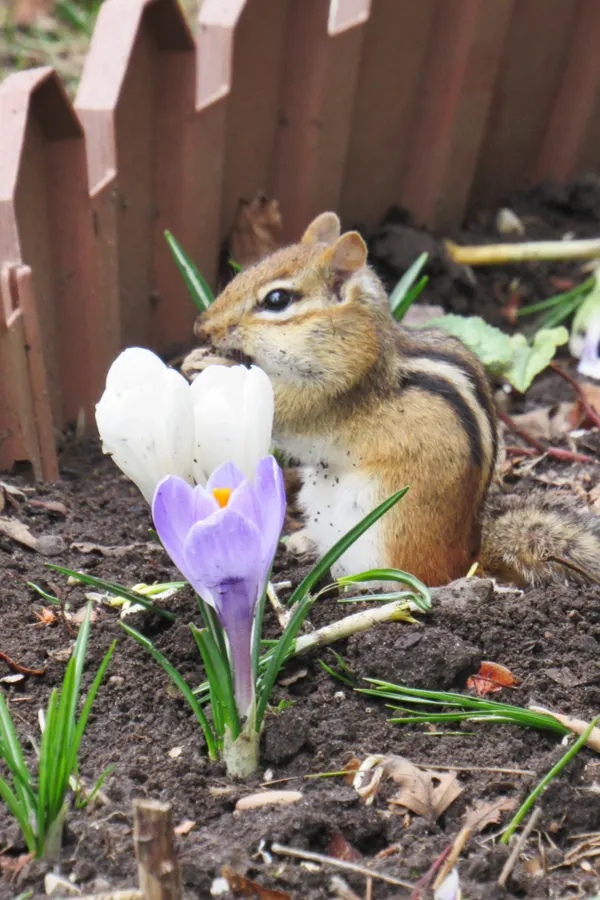
Unfortunately, traditional methods that work for squirrels don’t always work with chipmunks. Mainly because they are even smaller and faster. Because of that, they can dig or squeeze through normal fences and fit in tight spaces. All of course, to chew on your favorite flowering plants!
All is not lost, thankfully. You just need a bit of preparation to come up with effective, creative, and humane ways to keep chipmunks out of your flower garden. And we happen to have 5 such methods today!
Keep in mind that while one method might work great, you might have better luck combining them until you find the best way to stop chipmunks from digging up your flowers for your property.
5 Ways To Stop Chipmunks From Digging Your Flowers
1. Plant Flowers Chipmunks Don’t Like
Chipmunks, like any other animals, will usually have a food preference. They tend to favor certain items such as vegetables and seeds, as well as roots and bulbs. They will also avoid certain plants and flowers due to their taste or smell.
The trick is to know which items chipmunks won’t like and make sure to plant them around your yard or outdoor garden. Plants that have repellent-like scents or those that have a bitter taste will be less likely to be bothered by chipmunks.
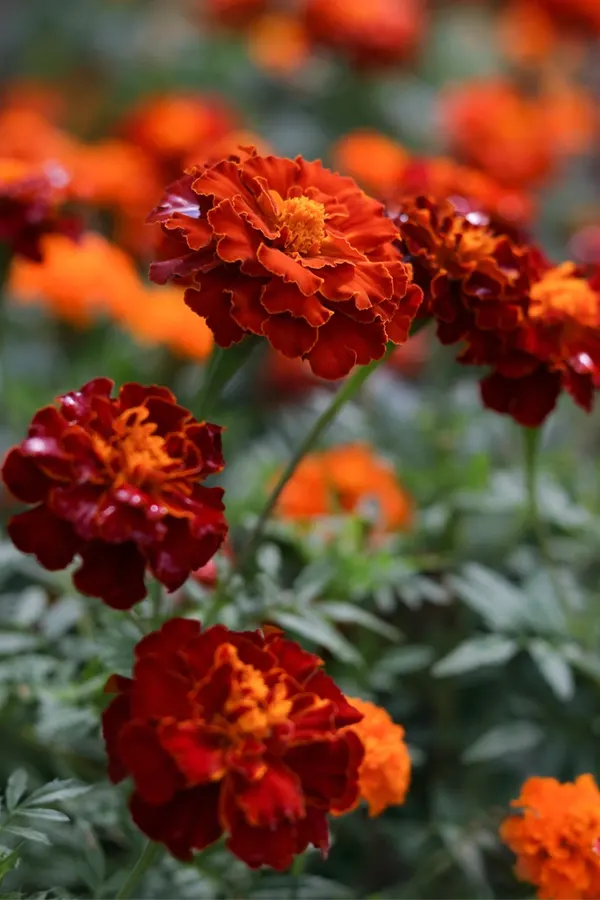
Daffodils are a prime example of a flowering plant that chipmunks dislike. Other examples include marigolds, lavender, and allium, as well as yarrow and common camas. All of these plants exude natural repellent scents that serve as a “stay away” signal to small rodents such as chipmunks, squirrels, and other similar pests.
The good thing about these plants is that they can still benefit your garden and flowerbeds. Not only do they add color and variety to your garden, but most of them are hardy and can withstand drought and bright sun.
You can plant these flowers in rows around your other flowers, or around entry points so chipmunks will likely want to find another place to investigate once they’ve tasted or smelled them.
2. Don’t Invite Them In – How To Stop Chipmunks From Digging Up Flowers
Like most animals, chipmunks prefer their living areas to be a certain way. So in order to make sure they don’t choose to make your location their home, you can make it so that your property doesn’t offer anything beneficial to them.
Chipmunks love to burrow, and they dig both deep and shallow holes for storing food and for hiding in. They, like squirrels, eat a variety of foods, such as insects, seeds, berries, and mushrooms, and will get them where available. Occasionally, these creatures will even forage and go through your garbage and eat leftovers or pet food.
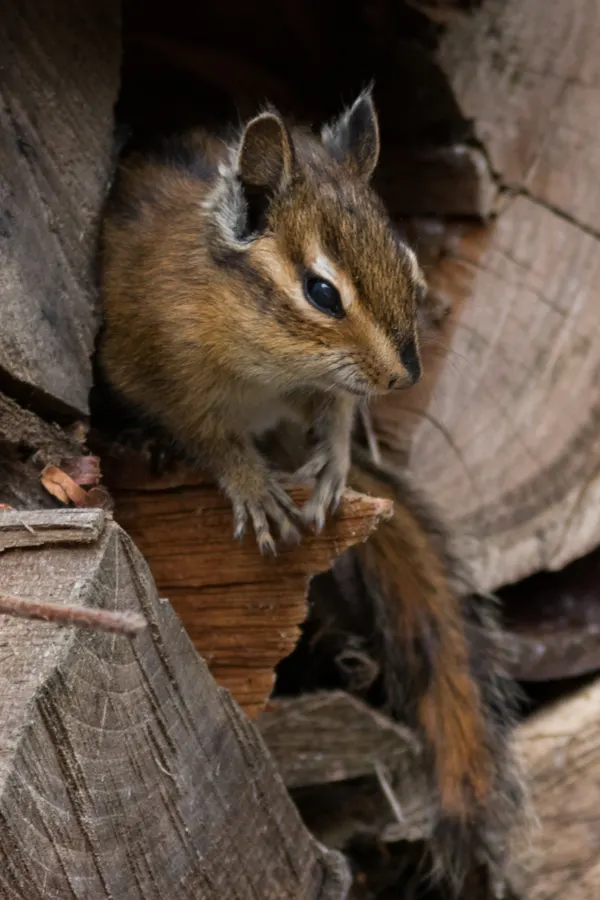
Take care to remove rock and woodpiles where they might seek shelter. Keep your garbage tidy and secure cans or containers so they won’t be attracted by it.
If you have bird feeders, make sure they’re well away from your plants and out of reach as well. Check out this article on keeping squirrels and other rodents away from your bird feeders to help out in that area.
By doing these few steps, you won’t give chipmunks any reason to want to hang around or to stay. With any luck, they’ll leave your pretty flowers alone and hunt for food somewhere else.
3. Turn to Homemade and Natural Repellents – How To Stop Chipmunks From Digging Up Flowers
Repellents work similarly to planting flowers that chipmunks and other rodents normally dislike. Keep in mind that these repellents are not intended to cause any harm to the critters; They merely discourage foraging and digging in your garden and property.
It’s been proven that hot, spicy peppers are a natural enemy of rodents, including chipmunks. In this case, you can easily obtain cayenne pepper, garlic, hot pepper flakes, or similar chilies in your kitchen cupboard to use around your flowers and plants.
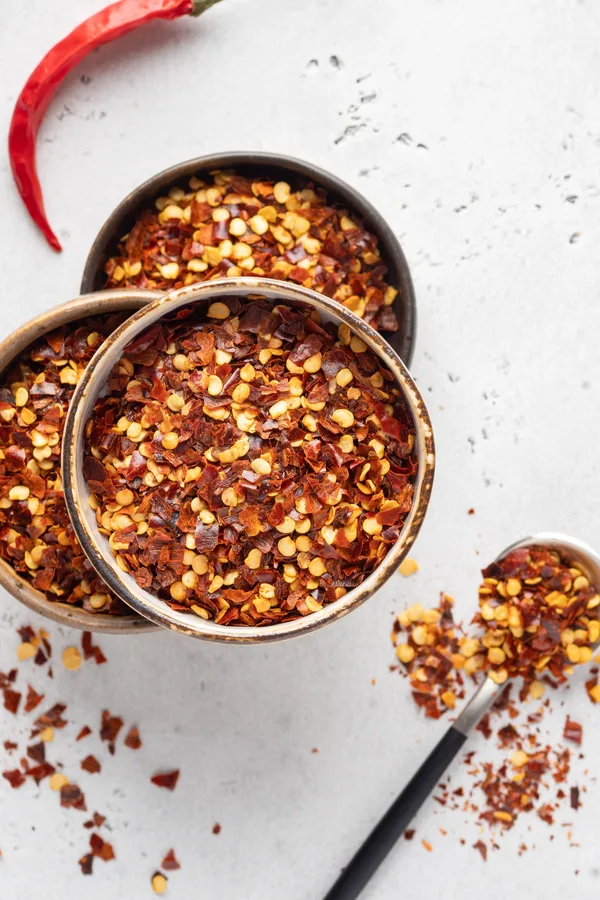
There are two ways you can implement these deterrents. First, you can sprinkle them around your pots, beds, and containers. Simply put a little bit of the hot peppers in a gloved hand, and sprinkle them where chipmunks might burrow.
If you’d rather, you can make a simple solution of cayenne or chili powder, garlic, and liquid dish soap and spray it around the area. For the liquid version, use a recipe like this one to easily make your own homemade hot pepper spray. Simply spray the solution directly on the flowers and plants.
In addition to hot pepper spray, you can also use essential oils like tea tree and peppermint oil.
4. Instill Natural Fear
Chipmunks are part of the natural pecking order of animals, which means that they are always on the look out for predators.
You can use their natural instincts against them by emulating some of the predatory behaviors of their natural enemies. The moment they sense that they’re in danger, the chipmunks are more likely to scamper off instead of destroying your plants and flowers.
Specifically, chipmunks are rather afraid of owls, cats, and foxes. You can turn to high-tech gadgets such as a motion-activated owl for example to stand in as a modern scarecrow to these pests.
5. Install Fence and Netting – How To Stop Chipmunks From Digging Up Flowers
Last but not the least, you can build a fence around your garden or property to help keep the chipmunks out. Keep in mind that ordinary fences are no match for chipmunks, so you’ll need to think smaller. You’ll want to reinforce the main fence with smaller netting such as welded wire mesh or even chicken wire.
Bury the fence a minimum of 6 inches underground since chipmunks are known diggers. Also, make sure the fence is tall enough that climbing will be a difficult task. Then, to seal the deal, you can add netting on the side and the top so they’ll have no choice but to give up and go somewhere else.
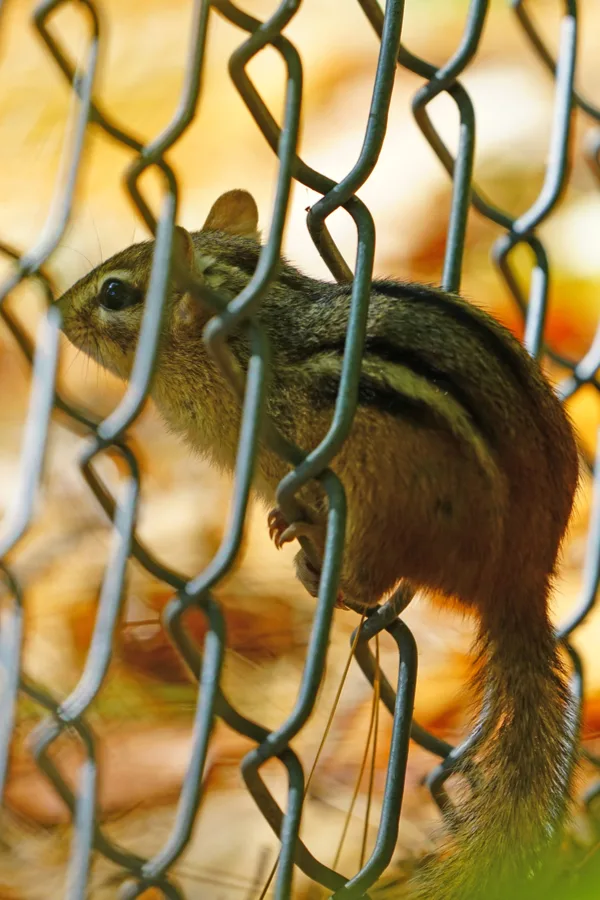
Remember to also cut down branches that would allow chipmunks to jump over the fence and into your garden. Dispose of unwanted branches and rocks they could use as a haven as well.
In Conclusion . . .
Keep in mind that you might need to use a combination of these tips in order to have success with stopping chipmunks. But, hopefully, with a little bit of extra work, you will safely and naturally keep your flowers protected all year long.
Follow Our Facebook Page For Even More Great Tips! Simple Garden Life Facebook Page
Simple Garden Life is a website dedicated to keeping gardening fun, simple and enjoyable! We publish two new articles each week along with a new garden podcast episode every two weeks. This article may contain affiliate links.
